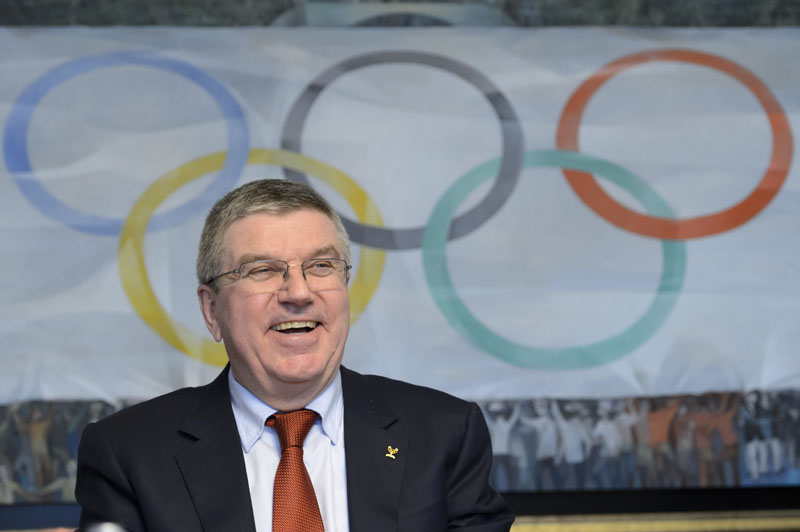Bach renews calls for fight against corruption and doping
LAUSANNE: International Olympic Committee President Thomas Bach called for renewed efforts Tuesday to combat corruption and doping, saying recent scandals are undermining the credibility of sports and unfairly casting suspicion on millions of clean athletes.
Bach called on all sports organisations to follow rules of "good governance" to prevent the type of corruption cases that have rocked the global governing bodies of soccer and track and field.
In an op-ed piece published in several newspapers around the world, Bach did not specifically name the scandals enveloping FIFA, the IAAF and Russia's track and field program, but the references were clear and unmistakable.
His comments came as the IOC executive board discussed issues of ethics and governance on the first day of a three-day meeting in Lausanne.
"As an Olympic medalist, recent developments in some sports are particularly upsetting," said Bach, a former fencer. "What saddens me most as a former athlete is that they erode the trust in the clean athlete."
"For their sake and the credibility of sports competitions, they have to be protected from doping and corrupting influences," Bach added.
Bach has repeatedly distanced the IOC from the scandal at FIFA that has led to a wave of arrests and indictments of dozens of soccer and marketing officials on racketeering charges and the suspensions of FIFA President Sepp Blatter and UEFA head Michel Platini. Blatter is a former IOC member.
"Fighting corruption means that good governance for sports organizations is essential," Bach said.
The IOC went through its own major corruption scandal in the late 1990s, with 10 members ousted for receiving cash and other favors during Salt Lake City's winning bid for the 2002 Winter Games.
Bach said the IOC now has audited financial reports, term and age limits for all members, and independent audit and ethics commissions.
"We have called on and we expect all sports organisations to follow this route," he said.
In a damning report released last month, a World Anti-Doping Agency panel alleged widespread, state-sponsored doping in Russia's track and field program.
The IAAF responded by suspending the Russian federation, a sanction that could keep the country's track and field athletes out of next year's Olympics in Rio de Janeiro unless credible reforms are enacted in time.
Kenyan athletes are also under scrutiny after a series of drug scandals. And three senior Kenyan athletics federation officials were suspended over accusations they subverted the nation's anti-doping system and siphoned money from Nike.
Because of all the scandals, clean athletes "see the finger of suspicion pointing at them," a situation akin to "the very worst side-effect of doping," Bach said.
The IAAF itself was caught up in scandal when its former president, Lamine Diack, was arrested and charged by French authorities with corruption and money-laundering, stemming from allegations that he took money to cover up positive tests in Russia. The IAAF's former anti-doping manager was also among those arrested.
Olympic leaders recently decided that drug-testing should be taken out of the hands of sports organisations to make the system more independent and credible. The IOC has asked WADA to take over testing on a global level, and for the Court of Arbitration for Sport to handle all drug sanctions.
Bach urged governments, which provide 50 percent of WADA's funding, to ensure their countries are fully compliant with global anti-doping rules and to crack down on dealers and corrupt doctors and coaches "with the full force of the law."






